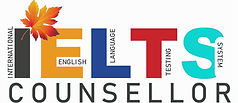Diploma in English for Information Technology

COMMUNICATE CONCISELY, PRECISELY, AND CONFIDENTLY
Introduction
The training program will invariably, cover the major areas based on the desired outcomes, with special focus on application of the learnt skills; This syllabus will be replicated or metamorphosed to suite the levels and professional needs of each individual participant and an additional module would be included to teach them the English they need for their professions.
Course Outline
Course Code | Duration | Individual (Rs.) | Corporate (Rs.) |
|---|---|---|---|
DE07 | 6 months | 12750 | 8750 |
Study Mode
Online / Offline / Distance Education
Diploma in English for Information Technology is a skill-based course for IT professionals and teachers. It aims to develop the English language skills (Speaking, Listening, Reading, and Writing) by appropriate use of IT vocabulary, considered as an essential requirement in technological environment. This course is designed in accordance with the Common European Framework of Reference for Languages (CEFR), and can be taken individually or through corporate training.
Modules | Units | Credits | Hours |
|---|---|---|---|
6 | 12 | 1200 | 100 |
This course is based on the European English Proficiency Framework Level B2 to C2. Formation of Study-Groups and Batches : Participants are grouped into the following categories:
GROUP 1 : Beginners or Elementary
GROUP 2 : Pre-Intermediate
GROUP 3 : Intermediate
GROUP 4 : Upper-Intermediate
GROUP 5 : Advanced

Training Cycle
Participants would be tested for progress, and performance reviewed frequently A test based on multiple choice questions. – 30 minutes. A written examination to test the professional use of English. – 60 minutes. An interview to test the verbal communication in a meeting. – 15 minutes each A PowerPoint slide presentation to be presented in the company premises. A presentation in the classroom (online, to be recorded for assessment) – 5 to 7 minutes each. A brief project submission with their own feedback about their progress. (500 words)

Corporate Training
A custom-made training program that upgrades the English language skills to practically usable forms:
Following steps would be taken in case, the course is conducted as Corporate Training:
Step 1: Categorizing students into small groups according to their English levels.
Step 2: Improving their grammar and English usage skills.
Step 3: Collecting, introducing, and explaining the glossary of their professional fields through exercises.
Step 4: Applying the above in business communication such as telephoning, e-mailing, reporting, etc.
Step 5: Training all of them to create and deliver presentations professionally (includes PowerPoint usage.)
Step 6: Tracking progress through assignments and regular reviews.
Step 7: Reviewing final outcomes through a practical approach

Who needs the
Diploma in English for Information Technology
?
Information Technology (IT) professionals and computer experts benefit significantly from pursuing a Diploma in English. Let’s explore why this diploma is crucial for their success:
1. Global Communication: The IT industry operates on a global scale, with clients, colleagues, and stakeholders from diverse cultures and countries. English serves as the universal language for communication. Whether you’re collaborating on projects, attending conferences, or negotiating deals, fluency in English is essential. As an IT professional, you’ll likely interact with clients worldwide, making effective English communication a must.
2. Coding and Technical Proficiency: Even the most basic features of software applications, including Microsoft Word, are written in English. An IT executive’s ability to code accurately depends on their command of the English language. Incorrect grammar or unclear instructions can hinder collaboration and business relationships. Technical knowledge alone won’t suffice; proficiency in English ensures successful implementation and user understanding.
3. Professional Growth Opportunities: Advancing in your IT career involves more than technical skills. Effective communication during presentations, negotiations with upper management, and other managerial tasks requires a working knowledge of English. Degrees alone are no longer sufficient; employers seek professionals who can articulate their ideas confidently in English. Whether you’re aiming for leadership roles or seeking better opportunities, strong English communication is essential.
4. Navigating Career Changes: As your career evolves, you may seek new challenges or better opportunities. Without effective English communication, negotiating job changes or salary expectations becomes challenging. A solid command of English allows you to handle tough interview questions and confidently express your aspirations.
5. Networking and Relationship Building: Successful IT professionals build and maintain relationships. Networking opens doors to better opportunities, but it requires social skills and self-confidence. Your English proficiency enhances your ability to connect with colleagues, industry leaders, and potential collaborators. At social gatherings, you’ll be the envy of others due to your excellent language skills.
In summary, mastering English isn’t just about language; it’s a gateway to global collaboration, career growth, and personal development for IT professionals. So, embrace the opportunity to enhance your English skills—it’s an investment that pays off in your professional journey.

